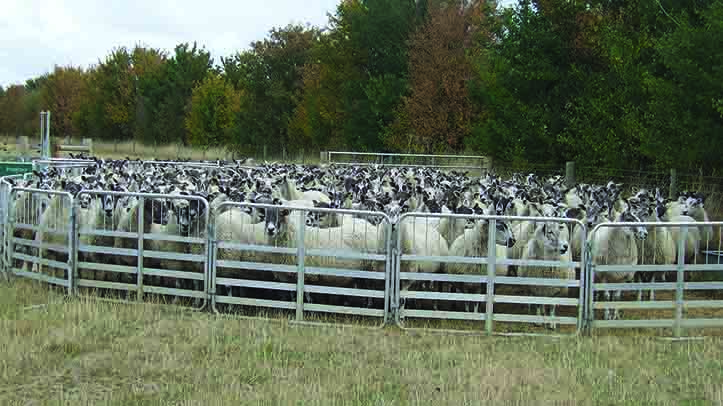With the sales of ewes and rams in full swing, SCOPS is reminding farmers of the importance of an effective quarantine protocol – not only to protect their existing flock but also their new purchases.
Nerys Wright, technical Adviser to SCOPS, said: “The word quarantine often carries negative connotations – it sounds restrictive and dull. But it’s one of the most important steps we can take to protect flock health.
“Farmers buy replacement ewes and rams that are often some of the best stock available – they’ve grown well, performed and achieved their potential. But that doesn’t mean they’re free from disease. Even the best-looking animals can carry parasites or pose a risk to the rest of the flock.”
Quarantine is important, not just from a parasite point of view, but also for managing other disease risks. Farmers should ensure that quarantine treatments have worked by carrying out post-treatment checks, as resistant worms may have been introduced with purchased animals. Correct product choice is essential and the SCOPS quarantine guide is a valuable tool to assess risks and timings.
Kevin Harrison, chair of SCOPS added: “One wrong move when bringing stock home can make a massive difference to the future health, welfare and productivity of your flock. Quarantine isn’t just a box-ticking exercise – it’s a golden opportunity to protect your farm for years to come.”
This summer, Haemonchus contortus (barber’s pole worm) has been a concern for farmers across the UK, with cases reported in multiple regions. If you don’t already have haemonchus on your farm, a robust quarantine protocol can help keep it that way.
Treatment protocols will vary depending on a farm’s location and where sheep are sourced from, but the key diseases to consider during quarantine are roundworms, liver fluke and sheep scab. For full details on recommended quarantine steps, visit the SCOPS quarantine webpage, by clicking here.


